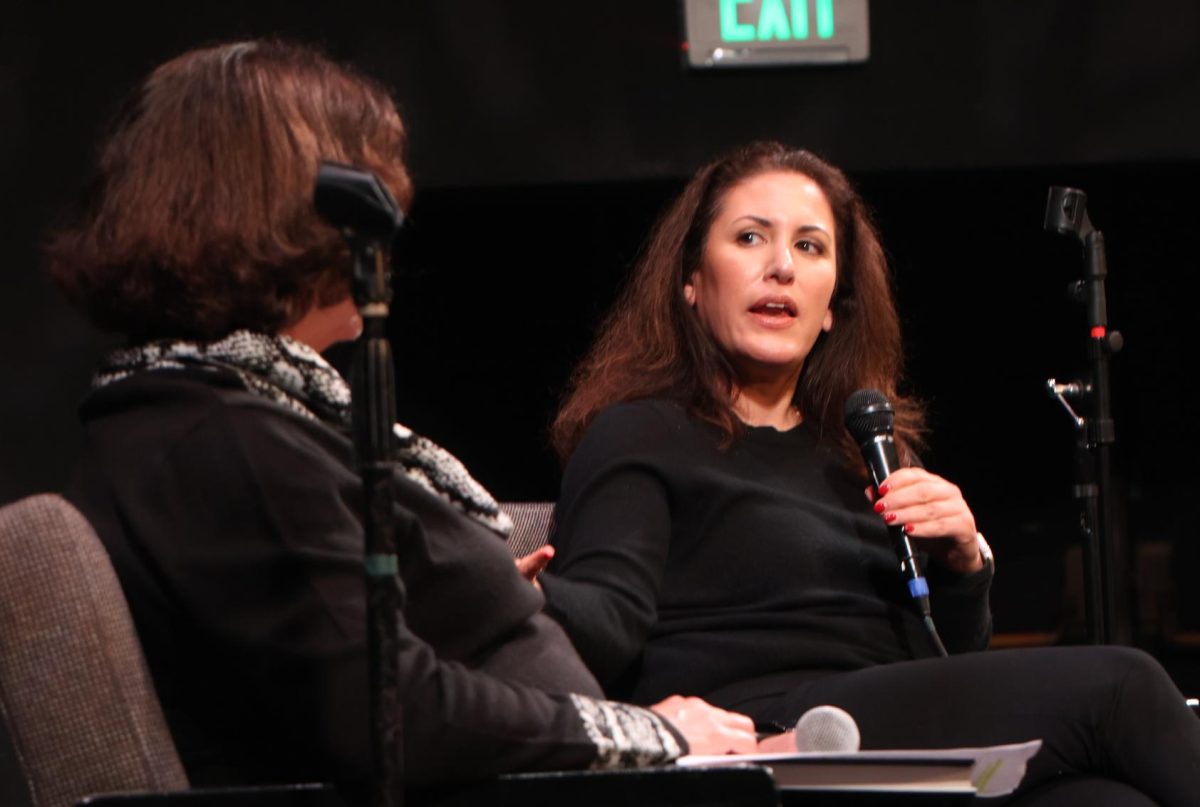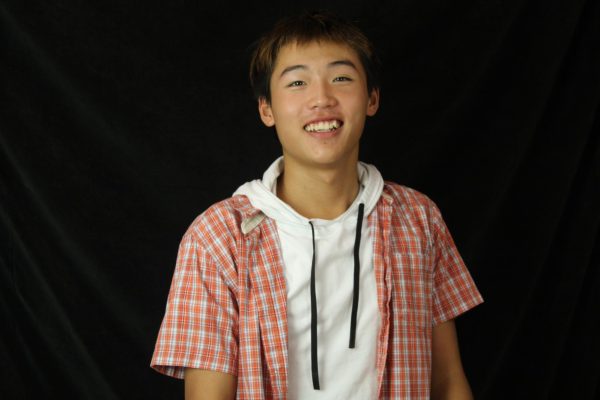College applications are becoming less and less a result of the work students put into their application, and more of a lottery system. Factors such as GPA, SAT scores, and extracurriculars used to be the ticket into a college — now they are just a ticket thrown into a raffle for entry. To author Ana Homayoun, the community built around the system has become increasingly toxic, with a student’s own mindset and habits controlling their chances of acceptance from both a college and their peers.
Homayoun has worked to uncover the flaws with the modern college application system for decades since her own rejection from college in the past. She expounded on the topic in a presentation on her latest book “Erasing the Finish Line,” on Dec. 6 in the Haymarket Theater.
“What kind of culture and community are we creating with the college application system nowadays?” Homayoun asked. “Erasing the Finish Line” covers the flaws of the modern-day college application system, and what students can do to increase their chances of acceptance to their colleges of choice.
“Erasing the Finish Line” is a collection of Homayoun’s own experiences working with students at Green Ivy Educational Counseling, her private college counseling company founded in 2001. Over the past two decades, Homayoun came to understand the fundamental issues with the college application process and how it’s often out of a student’s control. As colleges become more exclusive, there is less and less work that students can put on their applications to increase their chances. To Homayoun, the best ways to prepare for college are honing the executive function of the student, polishing time management skills and reforming the general stigma around college rejections.
One of the largest problems that Homayoun sees is not with the college system itself, but with the culture of recognizing success and failure through college applications. With the rise of the internet and short-form social media platforms like Instagram, TikTok and YouTube, videos of students sharing their celebration after being accepted to their favorite college have gone viral, exploding in popularity every year. Though most of these are posted with the simple intention to show the individual’s own joy, Homayoun believes that they do more harm than good.
“The majority of kids seeing that content are kids that were rejected from the same college, or at least their own favorite school,” Homayoun said. “Those things only ruin self-confidence.”
Additionally, Homayoun said comparisons and peer pressure among students often negatively affects their feelings of college applications.
“Talking about college every day becomes commonplace for senior [students],” Homayoun said. “Talking about how much someone has done themselves to prepare makes others feel like their own work is more inadequate.”
College applications themselves are more of a game of chance every year. Homayoun’s own college application experience three decades prior speaks to the inconsistent results of the application process — even after doing extra for her own application, and exceeding the average for most aspects of it, the rejection letter still arrived in her mail.
“It was shocking to me, finding out that it still wasn’t enough,” Homayoun said. “It pushed me to find the ways to avoid such a thing and share it to students moving forward.”
An example of a rejection that sparked controversy recently is Stanley Zhong. Zhong was a stellar student, with podium finishes in MIT computer science competitions and Google coding contests. He founded RabbitSign, a startup for e-signing. He was an active volunteer for teaching computer science to underprivileged communities in East Palo Alto. Even with all this, Zhong was rejected from every single Ivy League school, MIT, and more. Instead, he was hired by Google. Zhong’s story is not just a problem with affirmative action, but college applications overall. If a student like Zhong couldn’t get into a school with that many qualifications, what can students with fewer achievements do?
Homayoun found that success in a student’s application ended up revolving around how the student manages their own time and mindset. First off, grades are not supposed to be goals. To Homayoun, showing improvement is success, and a letter grade doesn’t speak to how the student is actually performing in school.
Second, students who are “floaters” often had an easier path to success.
“Floater [students] are those who can move from friend groups to other groups easily,” Homayoun said. “Research shows … that the more friendships you build, the more connections you have relieves the pressure you have to be part of only one thing.”
By removing the subconscious necessity in students to fit into one small group, their idea of success is opened up to more things, allowing a greater chance of getting what they want.
Third, managing time effectively to make more free time after school gave students less stress and more opportunities to try new things.
“The more things they [students] had time for, the more things they came to enjoy,” Homayoun said. “So, when the time came for college applications, those students were less worried if their one favorite major turned out to be not for them.”
Homayoun’s biggest piece of advice for juniors and seniors right now is to divide their time outside of school into chunks of work time and breaks.
However, to Homayoun, in the end, as important as time management is, having the right expectations for college is the best way to prepare.
“No one expects you to have straight A’s,” Homayoun said. “Knowing what’s within your ability and doing your best, is enough.”



